Never Alone brought back the child that was lost in drugs and addiction. We can't say enough about the staff and the facility. They loved and cared for her so well provide her with all the things she needed in her recover and helped her find herself again and provided her wi ...
About Never Alone – Adolescent Addiction Treatment Center
Teens experience a lot of changes that can be stressful and confusing. Unfortunately, sometimes this leads them to abuse drugs and alcohol. Located in Hurley, New York, Never Alone is ready to help your teen overcome substance abuse.
We’ve created a treatment facility designed specifically for adolescents between the ages of 12 and 17. Your loved one will get to be among peers their own age who are also recovering from addiction. They’ll be surrounded by the peaceful setting of nature in Upstate New York.
The maximum capacity at our camplike setting is 22 teens, which ensures your child will get all the attention they need. The core treatments that we provide to help with the recovery process include:
- Individual and group therapy: Solo sessions will help uncover the cause of their addiction, while group sessions offer the opportunity for encouragement from peers.
- Peer coaching: Advice from an individual who has been successful with recovery.
- Medication Management: Medicine to relieve withdrawal symptoms if needed.
Along with traditional treatments, we offer a broad range of holistic therapies to support the healing process. We use creative and expressive therapies such as meditation groups and guided journaling. We also incorporate fitness and outdoor activities through nature hikes, swimming, and nutrition and wellness coaching.
Additionally, your child will enjoy some fun in our social and recreational spaces. We have gaming rooms and outdoor long areas.
You also won’t have to worry about your child falling behind in school, as education will continue to be part of your teen’s daily schedule. Our staff will help with managing credit transfers, 504 plans and IEPs. At Never Alone, we provide all of the tools and resources your child needs not only to recover from addiction, but to begin living a better life.
Facility Overview
Latest Reviews
See AllRehab Score
Gallery



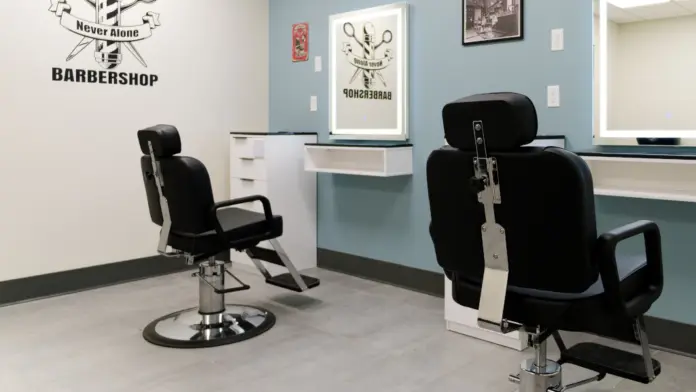

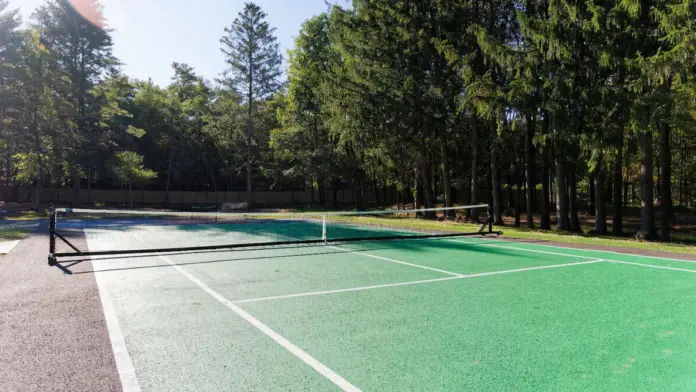

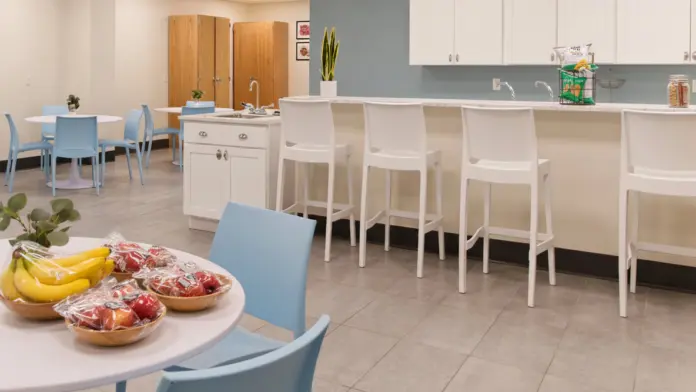
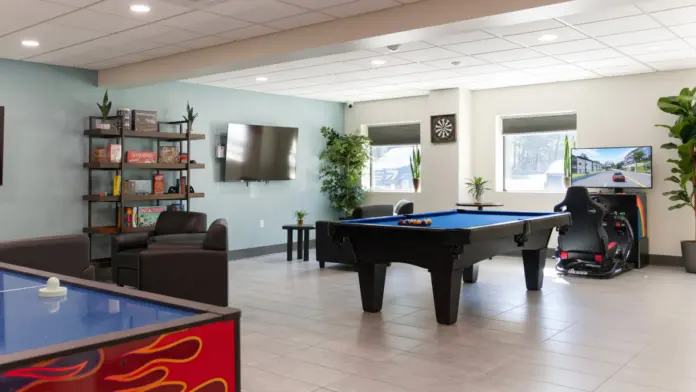
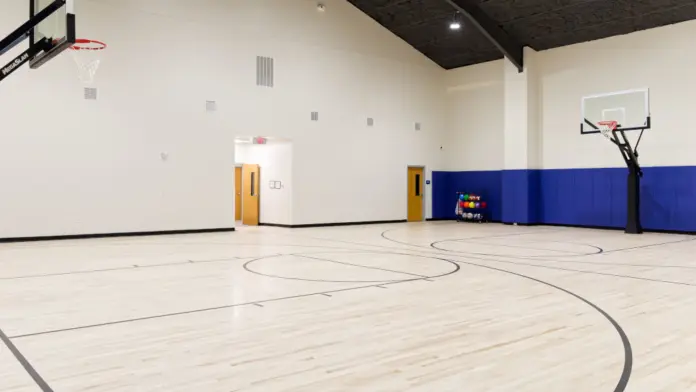
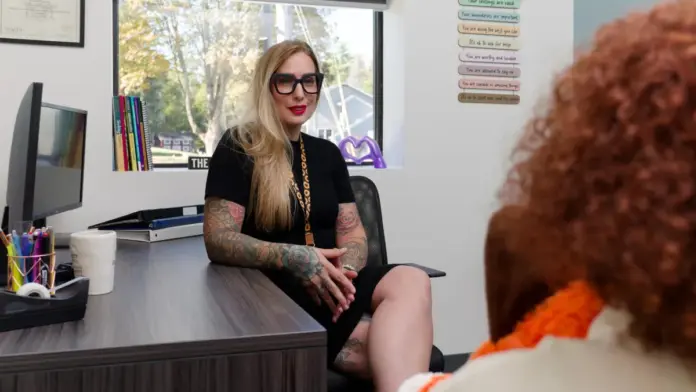
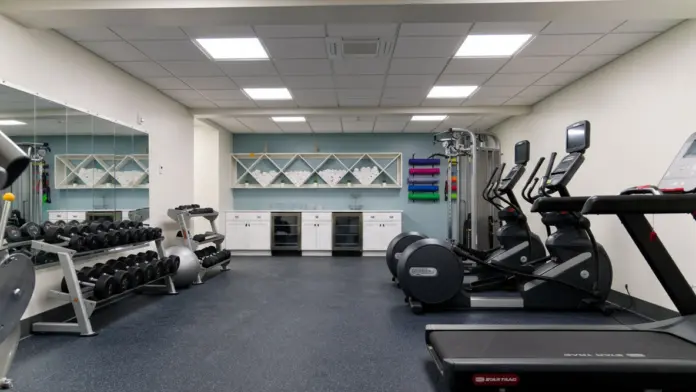








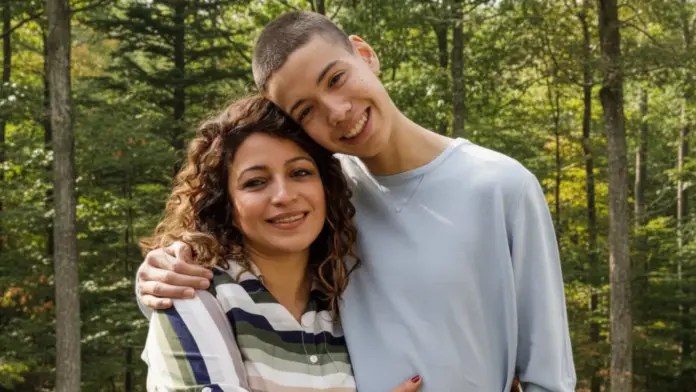
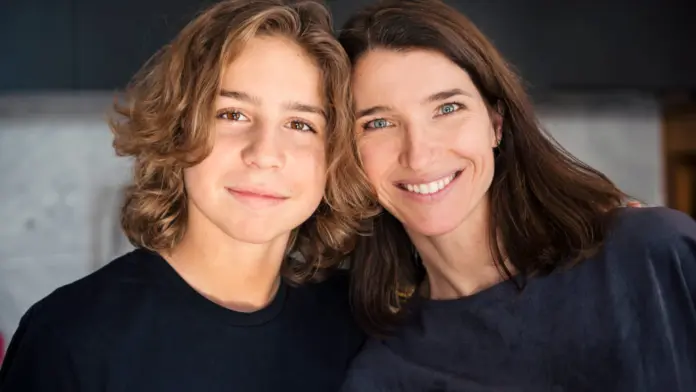




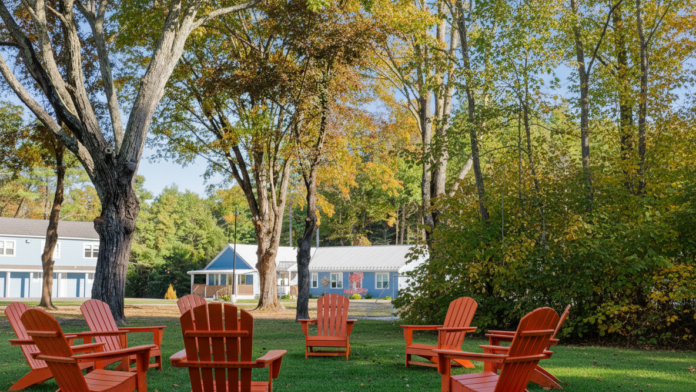





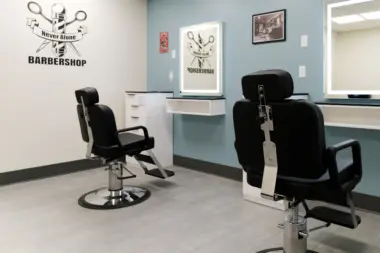

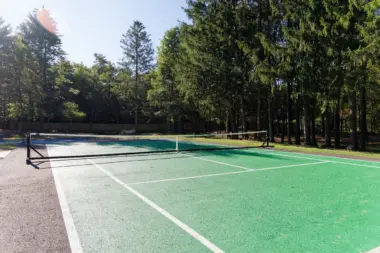

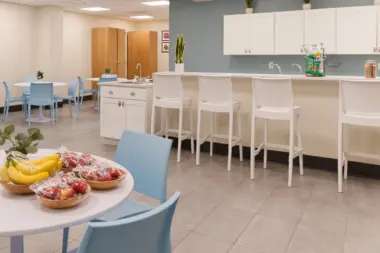
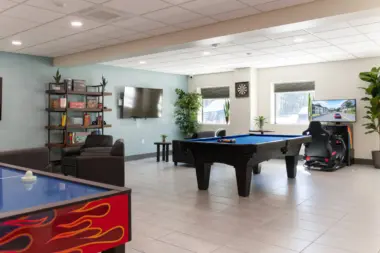
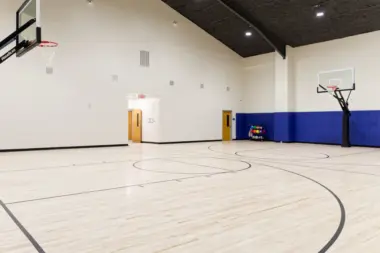

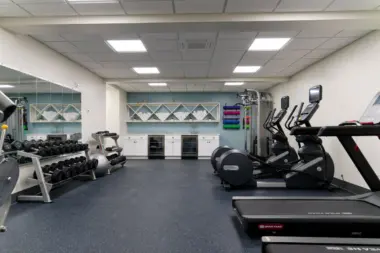








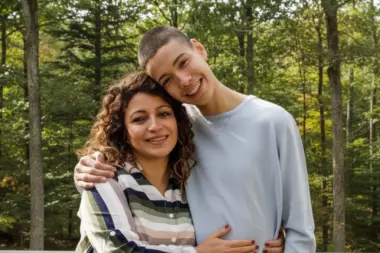





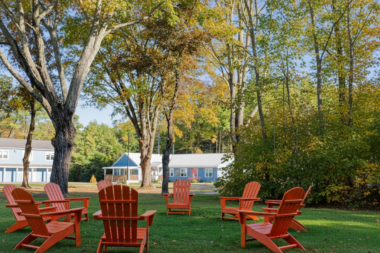


Accepted Insurance












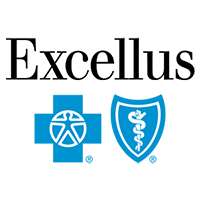













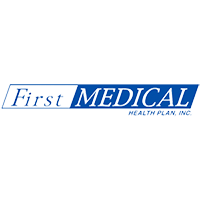






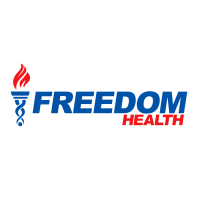




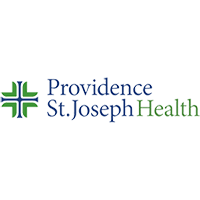


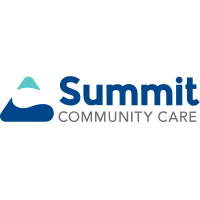



Other Forms of Payment
Private insurance refers to any kind of healthcare coverage that isn't from the state or federal government. This includes individual and family plans offered by an employer or purchased from the Insurance Marketplace. Every plan will have different requirements and out of pocket costs so be sure to get the full details before you start treatment.
Self-pay involves paying for treatment out of your own pocket. You can use savings or credit, get a personal loan, or receive help from family and friends to fund your treatment. If you don't have insurance or your insurance plan doesn't cover a specific program, self-pay can help ensure you still get the care you need.
Sliding scale payments are based on a client's income and family size. The goal is to make treatment affordable to everyone. By taking these factors into account, addiction recovery care providers help ensure that your treatment does not become a financial burden to you or your family, eliminating one barrier to care.
Addiction Treatments
Levels of Care
The residential rehab at Never Alone offers adolescents a camp-like environment where they can begin healing from addiction. They’ll stay in gender-specific housing and receive 24/7 support from staff who are specialized in adolescent care.
The 12 Step philosophy is a common tool utilized in AA, NA, and other addiction programs. Never Alone can incorporate this approach into your treatment. We may also advise you to participate in 12 Step meetings as a part of your ongoing recovery after you’ve completed residential treatment.
Clients in rehab aftercare programs receive a customized portfolio of services designed to promote their sustained sobriety. These clients have completed high-level treatment, are typically exiting detox and/or intensive inpatient care and are reintegrating into their home, workplace, and community. Rehab aftercare services address addiction disease as a chronic condition requiring continuing care. Clients typically work with case managers and recovery teams to access necessary resources, such as peer coaching and 12 step program induction support.
Treatments
Uncomfortable withdrawal symptoms can often follow when a teen stops alcohol use. Never Alone provides medication management services to help manage the discomfort. Teens will be able to focus on developing the relapse prevention tools they’ll learn in counseling.
Teens slowly lose themselves over time when they become addicted to drugs. At Never Alone, we understand the heartbreak and guilt you feel with trying to help your loved one. We will include you throughout the process as we use evidence based treatments to heal your child.
Mental health issues tend to occur alongside substance use. The staff members at Never Alone will treat common disorders such as anxiety, depression and trauma. Your loved one is treated with proven therapies such as cognitive behavioral therapy and dialectical behavioral therapy.
Some of the different types of opioids that youth can become addicted to include heroin, oxycodone and codeine. Never Alone will help your child safely get through the withdrawal process so they can begin discovering the cause of their addiction and start healing.
Through a combination of therapy and holistic treatment, Never Alone helps youth clients find a way to overcome addiction. With the calm setting of 32 forested acres, teens will be able to focus on healing and discover new ways to enjoy life.
Programs
Adolescents have unique struggles with addiction compared to adults. The staff will focus on helping teens address common causes of substance use such as past trauma and mental health issues. They’ll learn to develop healthy coping mechanisms for managing stress.
Older teens struggling with addiction are just beginning to enter adulthood. Our staff at Never Alone can tailor treatment to fit the needs of young adults. We provide the academic support needed to prepare for college.
Clinical Services
Cognitive Behavioral Therapy (CBT) is a therapy modality that focuses on the relationship between one's thoughts, feelings, and behaviors. It is used to establish and allow for healthy responses to thoughts and feelings (instead of unhealthy responses, like using drugs or alcohol). CBT has been proven effective for recovering addicts of all kinds, and is used to strengthen a patient's own self-awareness and ability to self-regulate. CBT allows individuals to monitor their own emotional state, become more adept at communicating with others, and manage stress without needing to engage in substance abuse.
When recovering from addiction, it can be difficult to find the words to express your emotions and thoughts. Creative arts therapy in New York gives you a way to express yourself beyond words. Options include sculpting, music, drawing, dance, and drama.
Dialectical Behavior Therapy (DBT) is a modified form of Cognitive Behavioral Therapy (CBT), a treatment designed to help people understand and ultimately affect the relationship between their thoughts, feelings, and behaviors. DBT is often used for individuals who struggle with self-harm behaviors, such as self-mutilation (cutting) and suicidal thoughts, urges, or attempts. It has been proven clinically effective for those who struggle with out-of-control emotions and mental health illnesses like Borderline Personality Disorder.
The philosophy behind experiential therapy is that your behavior is guided by your perception. This therapy allows you to express yourself creatively, which reveals how you perceive events. Your therapist will guide you through the exploration of your emotions to release negative ones and experience positive ones.
Research clearly demonstrates that recovery is far more successful and sustainable when loved ones like family members participate in rehab and substance abuse treatment. Genetic factors may be at play when it comes to drug and alcohol addiction, as well as mental health issues. Family dynamics often play a critical role in addiction triggers, and if properly educated, family members can be a strong source of support when it comes to rehabilitation.
Group therapy is any therapeutic work that happens in a group (not one-on-one). There are a number of different group therapy modalities, including support groups, experiential therapy, psycho-education, and more. Group therapy involves treatment as well as processing interaction between group members.
In individual therapy, a patient meets one-on-one with a trained psychologist or counselor. Therapy is a pivotal part of effective substance abuse treatment, as it often covers root causes of addiction, including challenges faced by the patient in their social, family, and work/school life.
Motivational Interviewing (MI) is a clinical approach to helping people with substance abuse issues and other conditions shift behavior in positive ways. It is more goal-oriented than traditional psychotherapy, as MI counselors directly attempt to get clients to consider making behavioral change (rather than wait for them to come to conclusions themselves). Its primary purpose is to resolve ambivalence and help clients become able to make healthy choices freely.
As you recover from addiction, eating the right foods will help you heal and build your health for long term sobriety. Nutrition therapy teaches you about the nutrition your body needs and how to eat the right foods to support your recovery.
Trauma therapy addresses traumatic incidents from a client's past that are likely affecting their present-day experience. Trauma is often one of the primary triggers and potential causes of addiction, and can stem from child sexual abuse, domestic violence, having a parent with a mental illness, losing one or both parents at a young age, teenage or adult sexual assault, or any number of other factors. The purpose of trauma therapy is to allow a patient to process trauma and move through and past it, with the help of trained and compassionate mental health professionals.
In addiction treatment, recreational therapy focuses on engaging you in healthy activities to help reduce your cravings and improve your mental well being. You might engage in activities like cooking classes, hiking, group sports, or swimming as a constructive outlet for stress and emotions that help your recovery.
Amenities
-
Art activities
-
Basketball court
-
Gym
-
Recreation room
-
Wilderness setting
-
Volleyball Court
-
Tennis Court
-
Private Setting
-
Beach Setting
-
Private Rooms
-
Art Activities
Staff & Accreditations
Staff
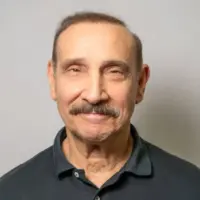
Dr. Riccardo Esposito, MD
Medical Director
Accreditations

The Joint Commission, formerly known as JCAHO, is a nonprofit organization that accredits rehab organizations and programs. Founded in 1951, the Joint Commision's mission is to improve the quality of patient care and demonstrating the quality of patient care.
Joint Commission Accreditation: Yes

State Licenses are permits issued by government agencies that allow rehab organizations to conduct business legally within a certain geographical area. Typically, the kind of program a rehab facility offers, along with its physical location, determines which licenses are required to operate legally.
State License: New York

LegitScript has reviewed Never Alone – Adolescent Addiction Treatment Center as part of their certification program, and has determined that it meets the LegitScript standards for legality, safety and transparency.
LegitScript verified in
